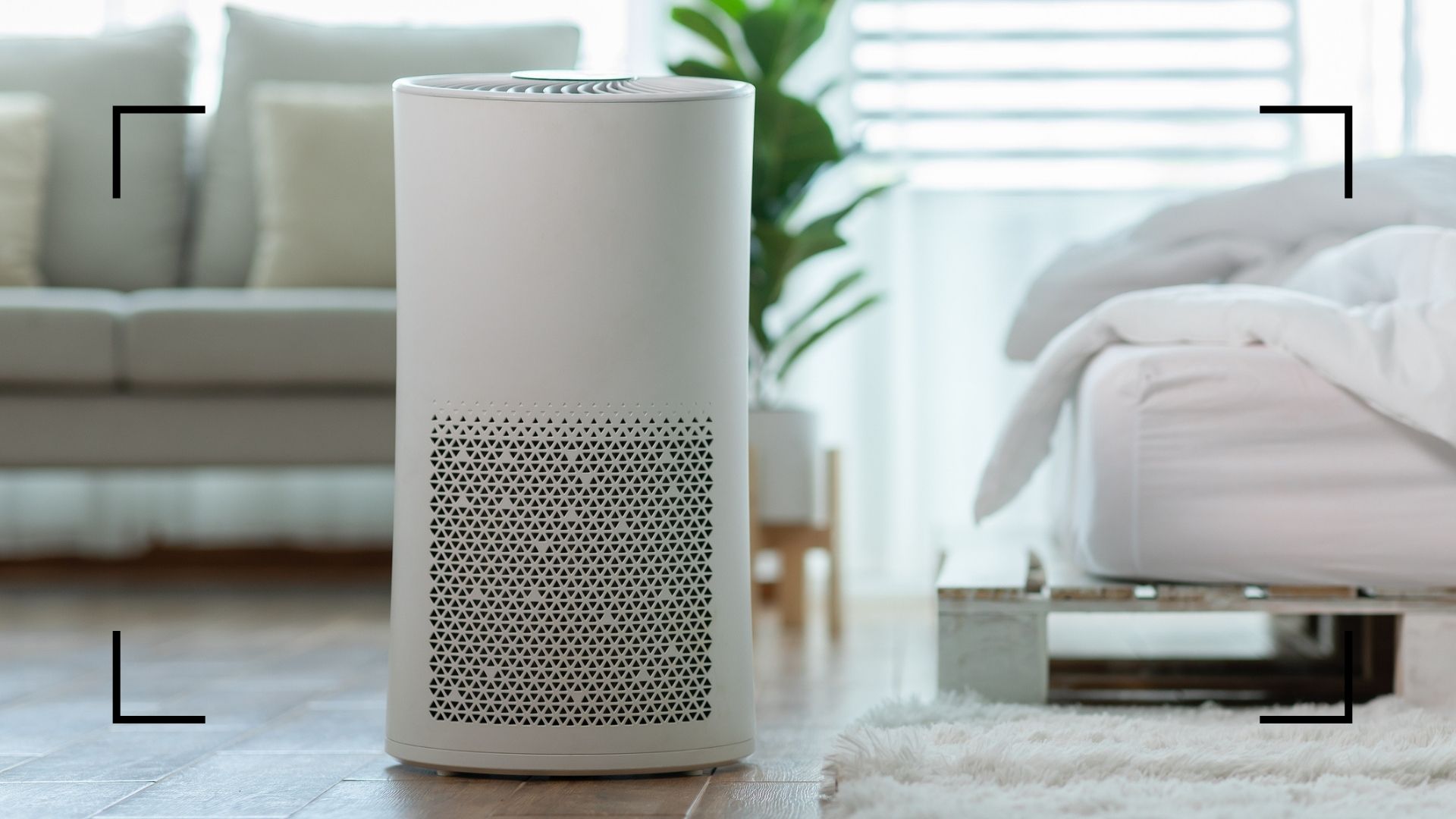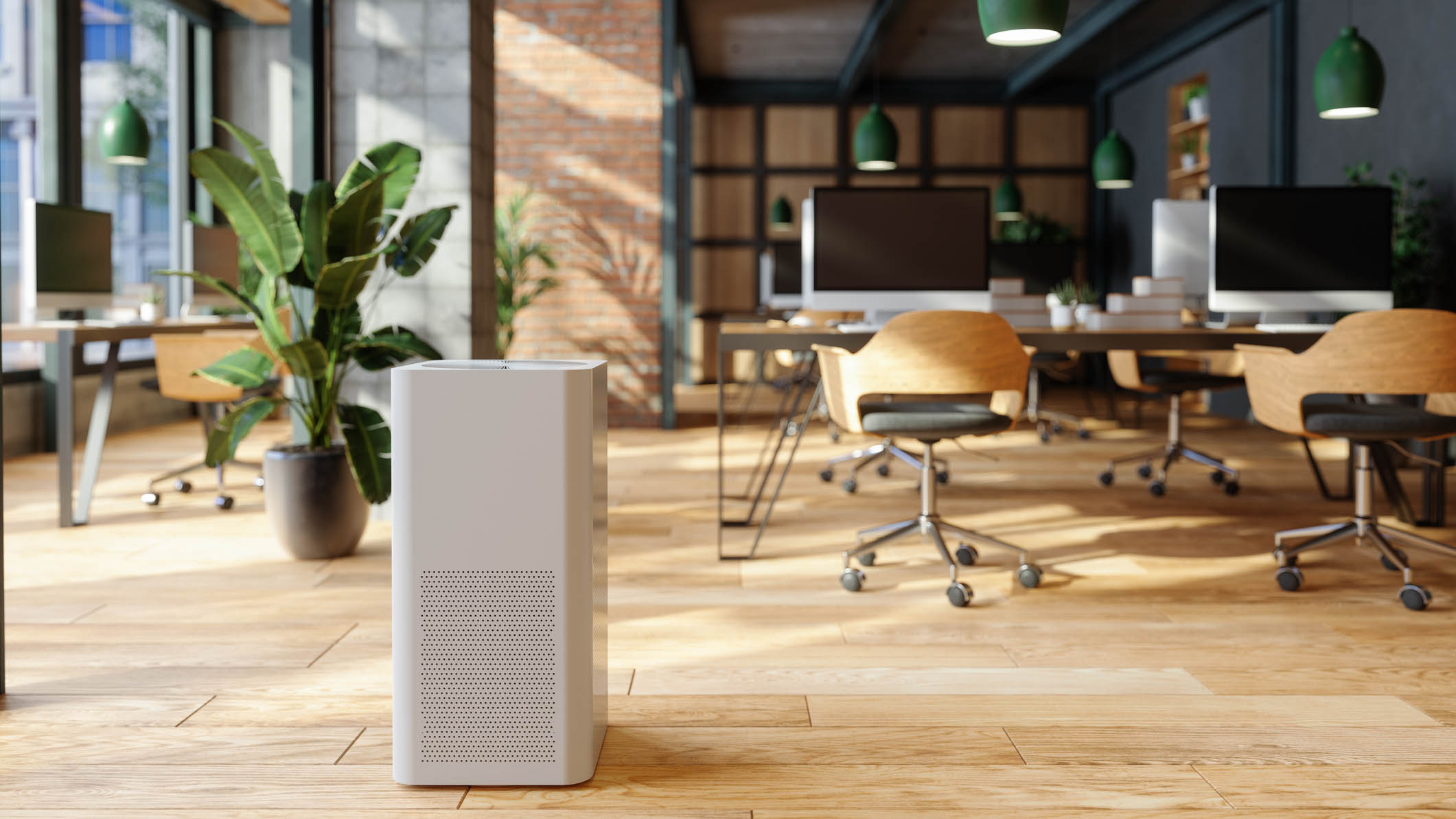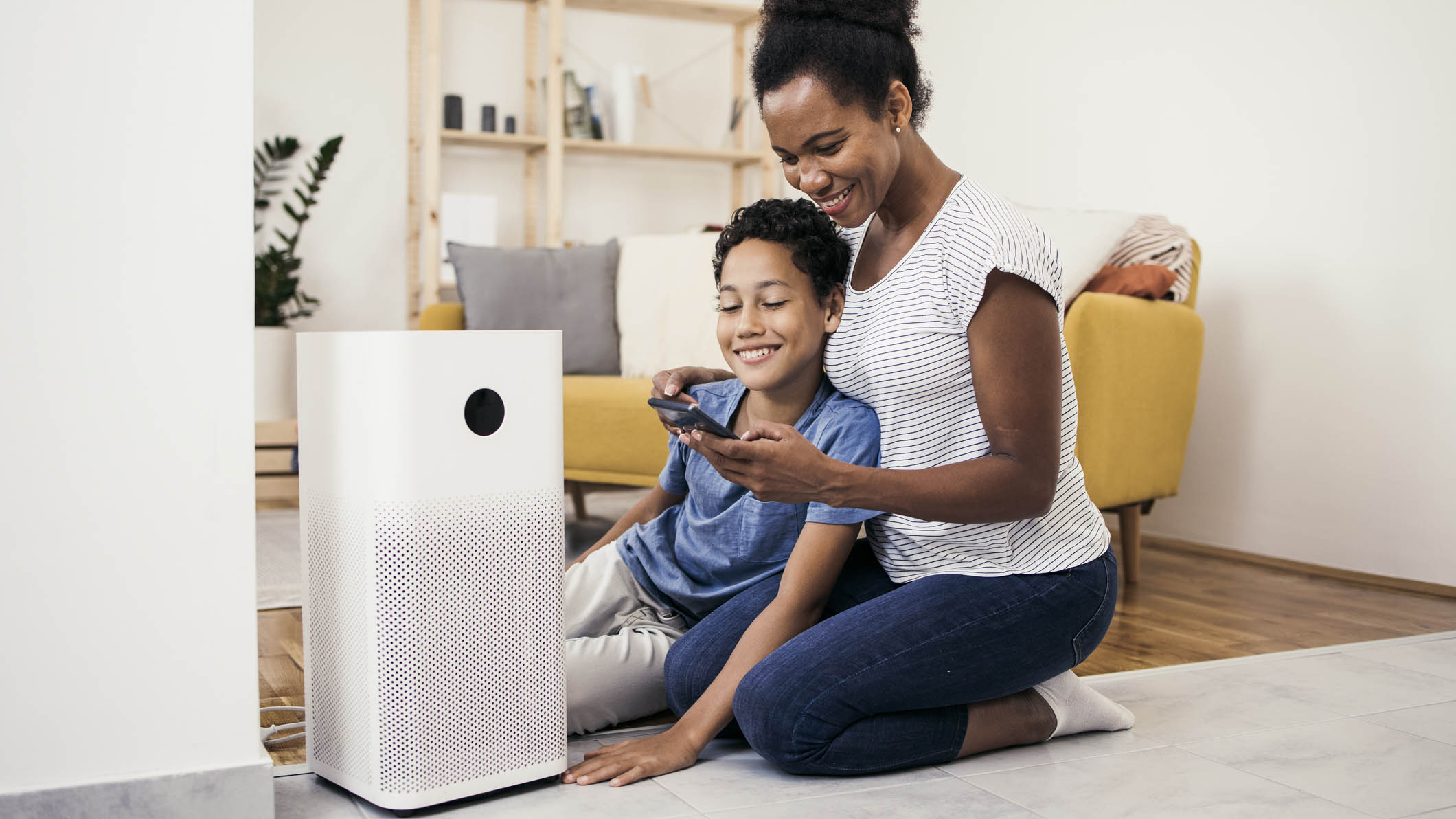How air purifiers work—do they really leave the air in your home cleaner?
Wondering how air purifiers work and whether you really need one in your home? We dissect the usefulness of the machines

If you're wondering how air purifiers work and if you need one in your home, you're not alone—as they can seem pretty complex. However, what they do is actually pretty straightforward and when you understand, it can help you make the decision about whether to have one yourself.
Put simply, an air purifier is there to help you breathe more easily and to clean the air in your rooms. The best air purifiers will do this quietly, quickly, and with expert precision. Essentially, air purifiers are there to get rid of the 'stuff' that we can't see, but that may be harming us in different ways—causing us to cough, sneeze, sniffle, or be something that may even be hurting our lungs.
Air purifiers promise to remove those irritants to help us breathe cleaner and fresher air. But how do they actually do it, and what do the various numbers and acronyms in the seemingly confusing product descriptions mean?
What is an air purifier?
At its simplest, when thinking about how air purifiers work, an air purifier is just a filter with a fan attached to it. The fan moves air through the filter, the filter traps particles, such as dust, pollen, dust mite residues, pet dander and so on, and the fan moves the newly cleaned air around the room. It’s a bit like a vacuum cleaner for the air you breathe.
They all look slightly different, but generally, they are designed like big circular or square machines that sit on the floor—and are mostly created to purify the air in one room at a time.
Air purifiers have grown in popularity recently, as the World Health Organization (WHO) reported in September 2021 that indoor air pollution has become serious problem in recent years. According to them, 3.8 million people a year die prematurely from illness attributable to household air pollution, namely from cooking sources such as open fires or simple stoves, fuelled by things like kerosene, biomass, and coal, or generally polluting or inefficient stoves. The United States Environmental Protection Agency (EPA) also reports that sources like tobacco smoke, mold, air cleaners, and the formaldehyde given off from things like furniture can also be concerning pollutants.
How does an air purifier filter things?
Put simply, we can’t see most of it, but the air around us is full of particles and pollutants like those mentioned above, and some of that can be a problem—because microscopic allergens and other irritants can affect our bodies causing physical symptoms like coughs. They can also even lead to serious illnesses. So how can air purifiers help us to tackle those things?
Sign up to our free daily email for the latest royal and entertainment news, interesting opinion, expert advice on styling and beauty trends, and no-nonsense guides to the health and wellness questions you want answered.
Cody Stahl, Indoor Air Quality Specialist at EnviroKlenz, explained, "There are multiple technologies currently being marketed, like carbon filters, ionizers, or HEPA filters. The tried-and-true methods are through high-efficiency filters, or HEPA, and other high-efficiency filters that are used to help remove those small particulates, including viruses and pathogens."
Put simply:
- Most air purifiers at the moment contain a HEPA filter.
- HEPA stands for high-efficiency particulate air and it’s a paper-like filter made from lots and lots of tiny interwoven fibres.
- Those fibres are woven so closely that large particles can’t get through, but air can—so the air passes through the filter and comes out the other side with many of its impurities removed
- A HEPA filter must be able to remove 99.97% of airborne particles that are 0.3 microns or bigger. Dust, pollen and dander particles are all much bigger than that.
Some air purifiers supplement their HEPA filter with an ionizer, as Stahl explained. That fills the air with negatively charged ions and their job is to attract positively charged particles, such as dust and dander. When they bump into those particles, each pair of positive and negative particles becomes a single, larger particle—and larger particles are much easier for the filters to trap.
Can air purifiers filter everything?

It's worth knowing that because of how air purifiers work, no home air purifier can remove everything unpleasant from the air, and some cope better with some things than with others. Stahl explained, "This can vary greatly depending on the air system itself (air exchange rates, CFM, room coverage) and filter mechanism used. Many air systems are designed for use in small rooms or homes and only remove specific types of pollutants like airborne chemicals or allergens."
For example, large particles, such as pollen and dust, are fairly easy to filter out. But volatile organic compounds (VOCs) or gases such as those produced from cigarette smoke are generally too small for HEPA filters to trap them effectively. If you need to reduce those kinds of particles, you’ll need an air purifier with activated carbon filters. But whichever purifier you have will help improve the air quality in your home.
Can air filters get rid of coronavirus?
It’s possible, at least theoretically. Because of how air purifiers work, the airborne droplets that spread coronavirus are the perfect size for most of them to trap, but for that to happen, you need to get the particles into the filter. While an air purifier might help reduce the amount of droplets in a small room used by someone who has the coronavirus, and whose coughs are putting more droplets into the air, you can achieve very similar effects by opening the windows.
However, the EPA explain that while air cleaning can help to reduce airborne contaminants, it isn't enough on its own to reduce the spread of Covid-19. The short version—assume it doesn’t make any difference and continue to social distance and wash your hands as much as possible.
It's also important to make sure you know how to clean your air purifier and to do so regularly, to ensure that yours is working as best it can to protect you against any pollutants and particles that could be harmful.

How can I tell whether an air purifier is any good?
There are a variety of ways of knowing how effective your air purifier is, though there is no, one, definitive way to know if you've got a good or a bad one. Generally, you should assess an air purifier's effectiveness in four main things:
- The room size it's intended for—an air purifier needs to be powerful enough for the room you’re in. Many air purifiers detail their maximum recommended room size, and you can use that to see whether that particular purifier has enough air power for the place you want to put it. If you don’t know the size of your rooms, the LABC in the UK (which represents councils’ building control teams) has a good rule of thumb—it says that the average UK room sizes are 17 square metres for a living room, 13 square metres for a master bedroom and 13 square metres for a kitchen.
- Its CADR—CADR is short for Clean Air Delivery Rate. It tells you how much filtered air a purifier produces in cubic feet per hour, but it doesn’t tell you how well the filter works. In other words, it’s a measure of cleaning capacity, not cleaning performance, but it's still worth check your air purifiers rating.
- How many times the air purifier changes the air—another good thing to look at is how many times an hour the air purifier changes the air. Some will change the air five times an hour; some less than twice. To get all of those good air purifier benefits, the former is generally better.
- Whether it's been externally tested—Stahl explained to w&h, "Third-party testing should be made available by manufacturers to show an air system’s ability to remove airborne chemicals and particulates, and consumers should look for test results when buying an air purifier."
So is it worth having one? Generally, yes—as it won't do any harm and can have some great benefits. Cody Stahl said, "Air purifiers are a great item to have in homes to keep the air clean and safe to breathe. We spend a large percentage of our time in the home, so we should make sure the air is as clean as possible to avoid short and long-term health issues."
With thanks to Cody Stahl, Indoor Air Quality Specialist at EnviroKlenz for his expert insight and time for this piece.
Writer and broadcaster Carrie Marshall has been writing about all kinds of technology since 1998. Carrie’s CV is a who’s who of magazines, newspapers, websites and radio programs ranging from T3, Woman & Home, Techradar and MacFormat to the BBC, Sunday Post and People’s Friend, and she offers straight-talking tech advice on BBC Radio Scotland every Monday. Carrie has also written thirteen non-fiction books and ghost-written two more, and she has also been the co-writer of seven books and a Radio 2 documentary series. Her memoir, Carrie Kills A Man, will be published in late 2022.